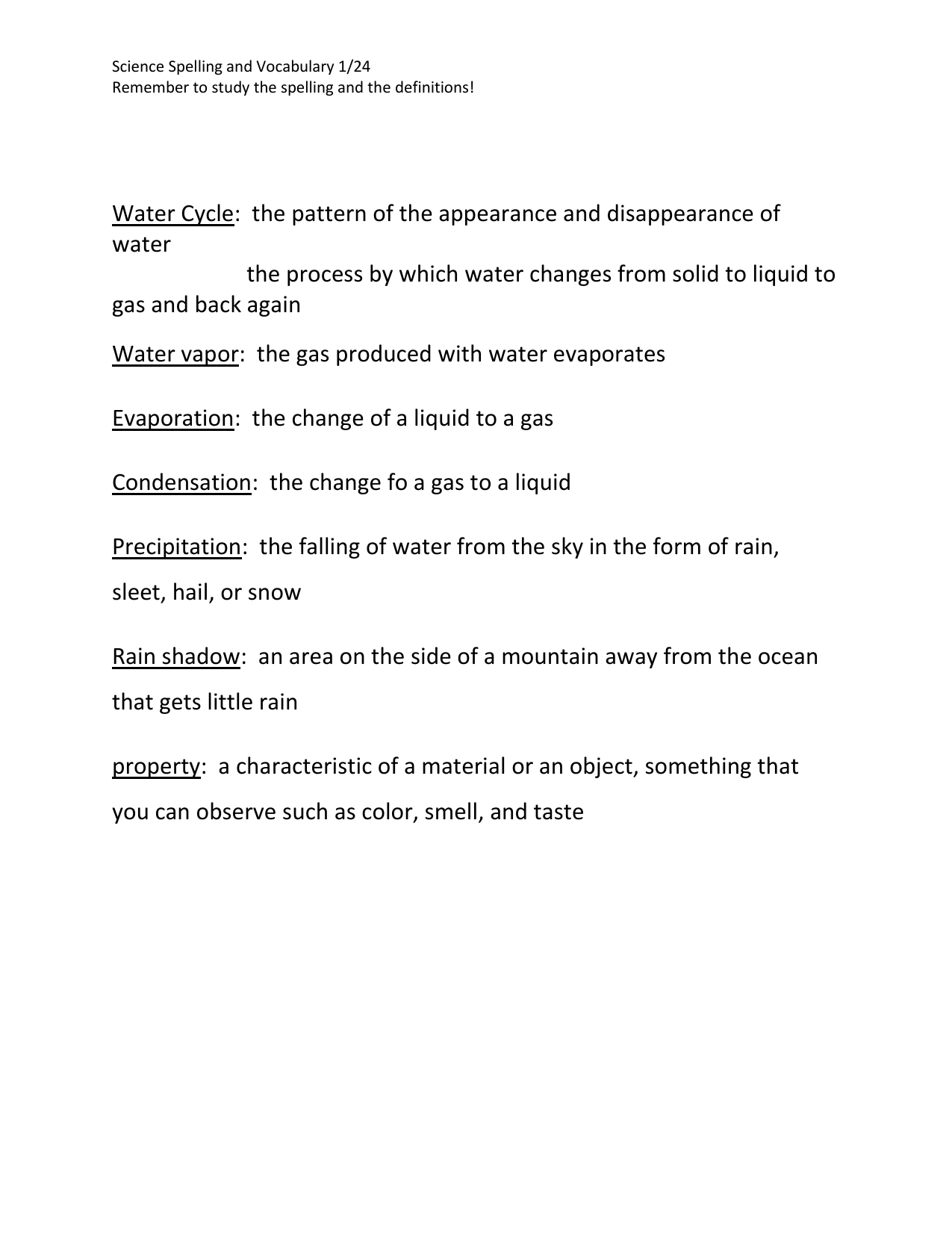Learning about the water cycle is an essential part of a 4th-grade science curriculum. It helps students understand the continuous journey of water on Earth, from evaporation to precipitation. By mastering water cycle vocabulary, students can better comprehend the processes that drive our planet’s water cycle.
As students delve into the world of water cycle vocabulary, they gain a deeper appreciation for the interconnectedness of Earth’s natural systems. This knowledge empowers them to make informed decisions about water conservation and environmental stewardship.
Water Cycle Vocabulary for 4th Grade
1. Evaporation: The process by which water changes from a liquid to a gas, usually due to heat from the sun.
2. Condensation: The process by which water vapor in the air cools and changes back into liquid water, forming clouds.
3. Precipitation: Any form of water, such as rain, snow, sleet, or hail, that falls from the atmosphere to the Earth’s surface.
4. Runoff: Water from precipitation that flows over the surface of the land and into rivers, lakes, and oceans.
5. Groundwater: Water that is found beneath the Earth’s surface in soil and rocks, often stored in underground aquifers.
Understanding these key terms is crucial for students to grasp the different stages of the water cycle and how water moves through the environment. By familiarizing themselves with these terms, students can engage more deeply with water cycle concepts and apply their knowledge to real-world scenarios.
Teachers can incorporate hands-on activities, such as creating a model of the water cycle or conducting experiments with water evaporation and condensation, to reinforce these vocabulary terms. By making learning interactive and engaging, students can solidify their understanding of the water cycle and its importance to the planet.
In conclusion, mastering water cycle vocabulary is a fundamental step in developing a strong foundation in Earth science for 4th-grade students. By equipping students with the language and concepts necessary to understand the water cycle, educators empower them to become informed global citizens who value and protect our planet’s most precious resource – water.
